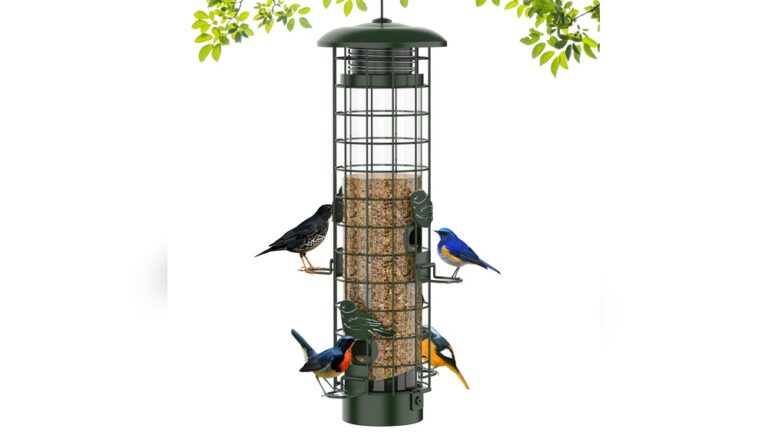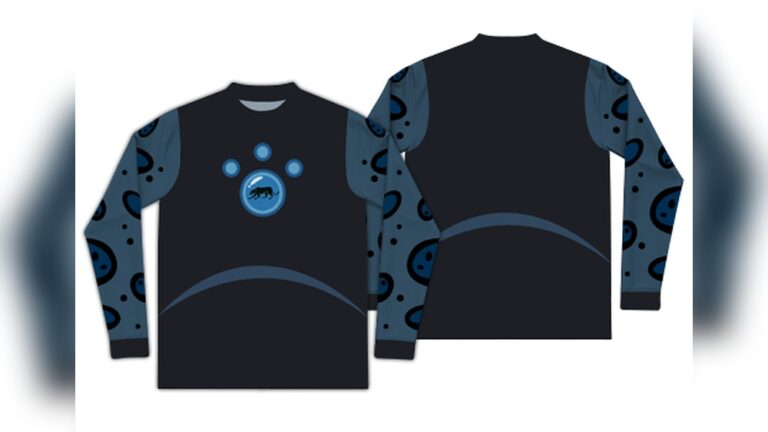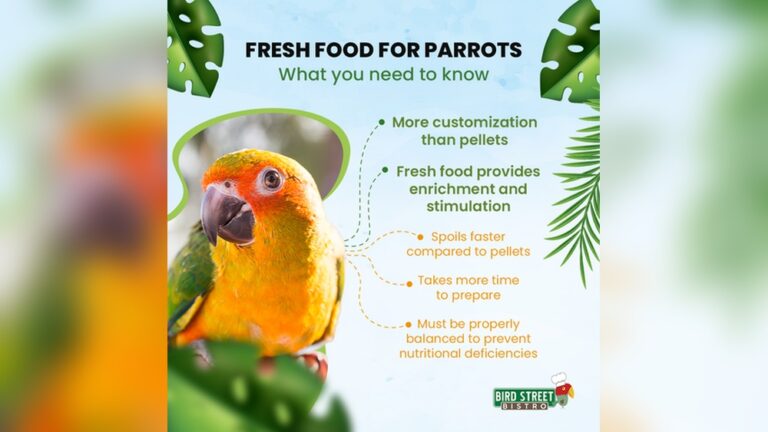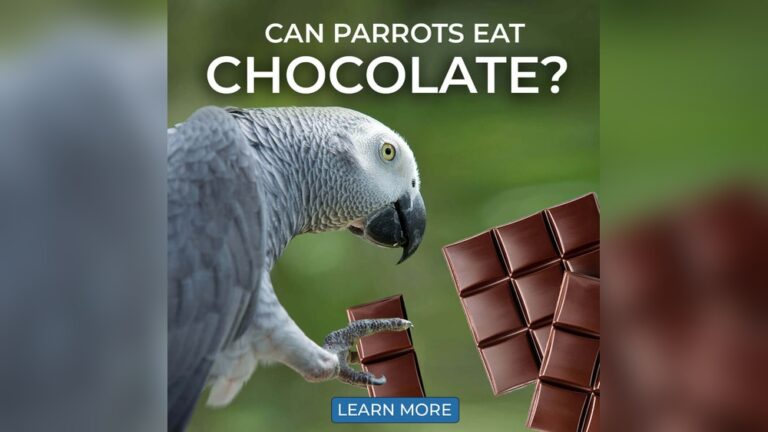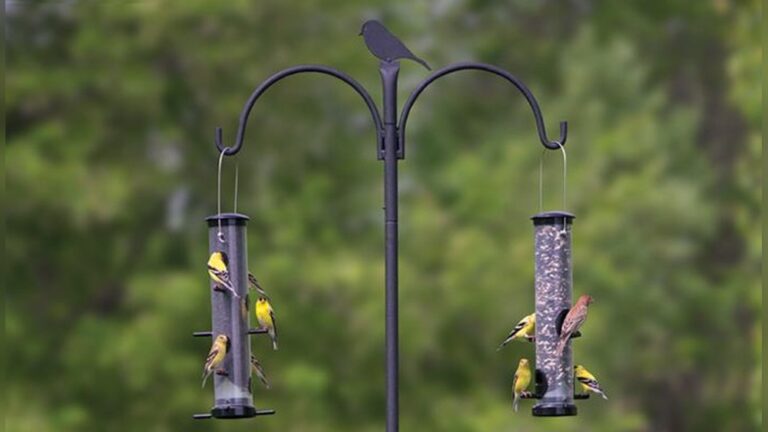Absolute Bird Feeder
Are you tired of bird feeders that are hard to fill, attract unwanted pests, or just don’t last? Imagine having an absolute bird feeder that makes watching your feathered friends a joy every day.
This isn’t just any feeder—it’s designed to bring more birds to your yard, stay clean longer, and stand up to the weather. If you want to create a vibrant, lively space right outside your window, keep reading. You’re about to discover what makes the absolute bird feeder a must-have for every bird lover.
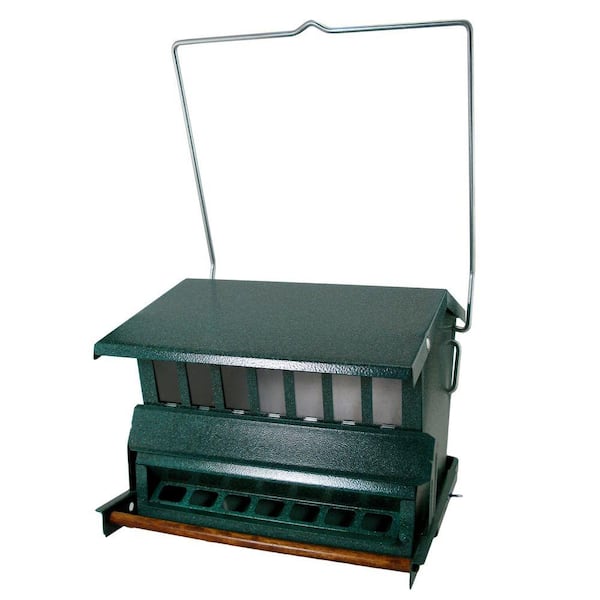
Credit: www.homedepot.com
Types Of Bird Feeders
Bird feeders come in many shapes and styles. Each type attracts different birds and suits various gardens. Choosing the right feeder helps you enjoy watching birds up close. Here are some popular types of bird feeders.
Tube Feeders
Tube feeders are long and narrow with small feeding ports. They hold seeds like sunflower or mixed seed. These feeders keep the food clean and dry. Small birds such as finches and chickadees love tube feeders. They often have perches for birds to sit on while eating.
Hopper Feeders
Hopper feeders look like small houses. They hold a large amount of seed inside. Birds can eat from the bottom tray as the seed flows down. These feeders attract many bird types at once. They work well for medium to large birds like cardinals and grosbeaks.
Platform Feeders
Platform feeders have a flat surface to spread seed. They are open and easy for all bird sizes to use. You can place different foods like seeds, nuts, or fruit. Ground-feeding birds such as doves and jays enjoy platform feeders. They also allow birds to watch for predators easily.
Suet Feeders
Suet feeders hold blocks of suet, a high-energy food. Suet attracts woodpeckers, nuthatches, and other insect-eating birds. These feeders often have cages to hold the suet in place. They work well in cold months when birds need more energy.
Choosing The Right Feeder
Choosing the right Absolute bird feeder makes a big difference for your backyard visitors. The feeder must suit the types of birds and your outdoor space. Some feeders attract small birds, while others hold larger species. Think about where you want to place the feeder and how much care it needs. Understanding key features helps you find the perfect match for your garden.
Material Options
Bird feeders come in various materials like plastic, metal, and wood. Plastic feeders are light and easy to clean. Metal feeders last longer and resist damage. Wooden feeders look natural but need more care. Choose a material that fits your style and lasts in your climate.
Size And Capacity
Feeder size affects how many birds visit at once. Small feeders hold less seed and need refilling often. Large feeders store more seed and attract many birds. Consider how often you want to refill. Match the feeder size to the number of birds in your area.
Weather Resistance
Bird feeders face rain, wind, and sun. Choose a feeder that handles weather well. Metal and plastic resist rain better than wood. Look for feeders with covers to protect seed from rain. A weather-resistant feeder keeps seed dry and fresh longer.
Squirrel Proof Features
Squirrels can steal birdseed and damage feeders. Some feeders have cages or weight-sensitive parts to stop squirrels. Look for feeders designed to keep squirrels out. This protects your seed and keeps birds safe from pests.
Best Seeds For Birds
Choosing the right seeds for your Absolute Bird Feeder attracts a variety of birds. Different seeds appeal to different bird species. Offering a mix helps you enjoy more bird visits. Seeds also provide essential nutrients for birds’ health and energy.
Sunflower Seeds
Sunflower seeds are a favorite for many birds. They come in two types: black oil and striped. Black oil seeds have thinner shells and more oil. Birds like finches, cardinals, and chickadees love them. These seeds are rich in fat and protein. They keep birds strong, especially in cold weather.
Nyjer Seeds
Nyjer seeds are tiny and black. They attract small birds like goldfinches and siskins. These seeds fit well in special feeders. Nyjer seeds are high in oil and energy. They help small birds stay active and healthy. Use fresh nyjer seeds for best results.
Millet
Millet is a small, round seed. It is popular with ground-feeding birds like sparrows and doves. White proso millet is the most common type. Birds find it easy to eat and digest. Millet is a good source of carbohydrates. It gives birds quick energy during the day.
Peanuts
Peanuts attract larger birds such as jays and woodpeckers. Offer them shelled or unshelled, but avoid salted peanuts. Peanuts provide protein and fats for birds. They help birds build feathers and stay warm. Use peanut feeders or mix peanuts with other seeds.
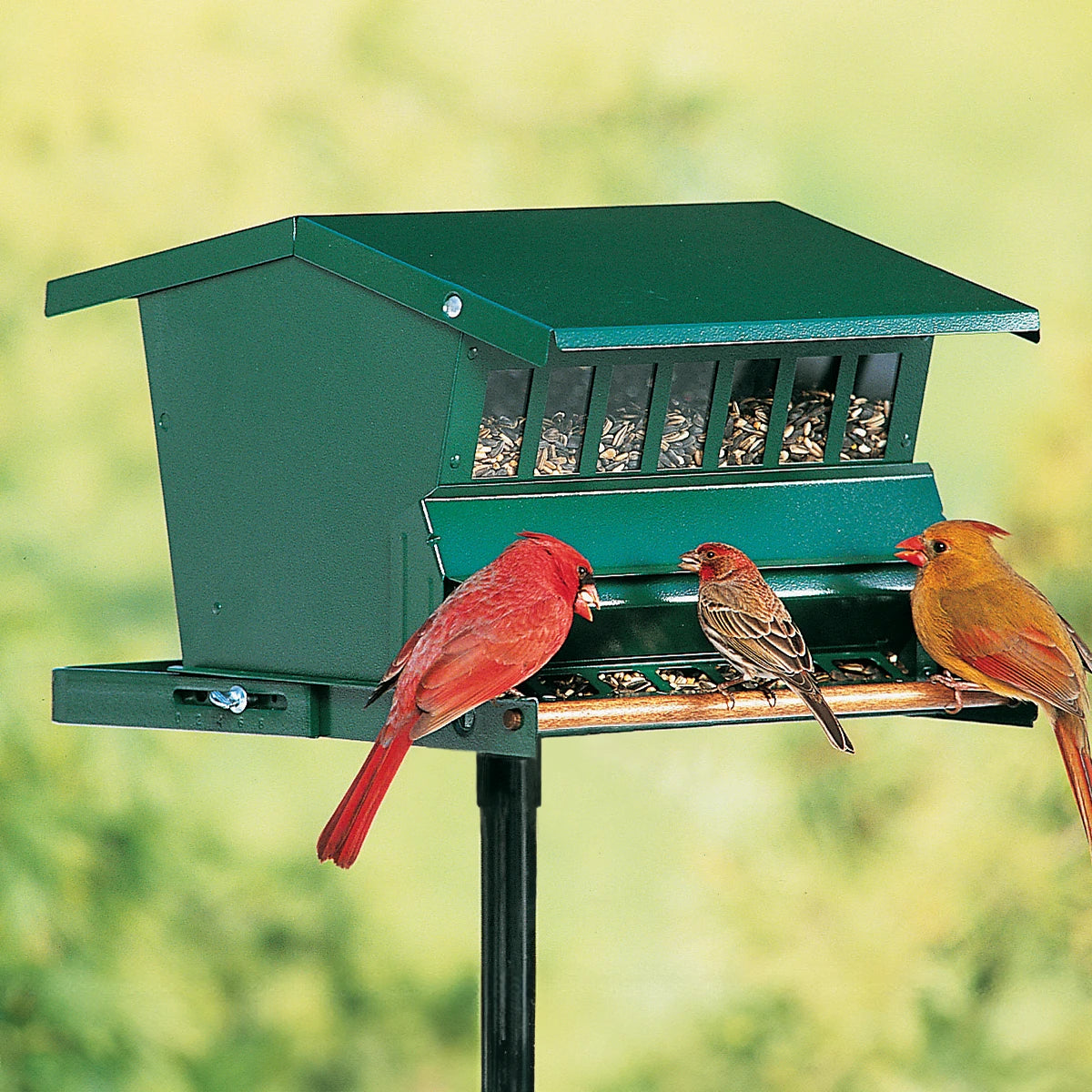
Credit: duncraft.com
Placement Tips
Placing your Absolute Bird Feeder correctly helps attract more birds. It also keeps them safe and your space clean. The right spot makes a big difference for bird watching and feeding.
Ideal Locations
Choose spots near trees or shrubs. Birds like places where they can rest and hide. Avoid open areas with no cover. Near windows is good for watching birds easily.
Safety From Predators
Keep feeders away from cats and other animals. Place feeders high or on poles with baffles. Avoid spots near thick bushes where predators hide. Safety helps birds feel secure while eating.
Visibility For Birds
Pick a clear view for birds to see the feeder. Avoid placing feeders too close to busy areas or loud noises. Birds like calm and quiet places. Visibility helps them find food fast and easily.
Avoiding Mess
Place feeders over hard surfaces like concrete or gravel. This makes cleaning easier. Avoid spots near patios or walkways to keep areas clean. Use a feeder with trays to catch spilled seeds.
Maintenance And Cleaning
Keeping your Absolute Bird Feeder clean is key to attracting healthy birds. Dirt and old seeds can cause harm to birds. Regular maintenance extends the feeder’s life and keeps birds safe. A clean feeder looks nice and works well.
Cleaning Frequency
Clean the bird feeder every two weeks. In wet weather, clean it more often. Check it weekly for dirt or mold. Remove old seeds and debris each time. Frequent cleaning stops disease and keeps birds happy.
Preventing Mold
Mold grows in damp places and can harm birds. Keep the feeder dry by placing it in a sunny spot. Avoid overfilling with seeds to reduce moisture. Use fresh seeds and remove wet or clumped ones. Good airflow helps stop mold growth.
Disinfecting Techniques
Use a mild bleach solution to kill germs. Mix one part bleach with nine parts water. Soak the feeder for 10 minutes, then rinse well. Let it dry completely before refilling. Clean all parts, including trays and perches. Wear gloves to protect your skin.
Attracting More Birds
Attracting more birds to your garden or yard makes bird watching a joyful experience. Birds bring life, color, and sound to outdoor spaces. Using the right methods helps create a welcoming environment for them. Simple steps can increase bird visits quickly and naturally.
Using Feeders With Water Sources
Birds need water for drinking and bathing. Feeders placed near water attract more birds. A small birdbath or fountain works well. Moving water catches birds’ attention faster. Keep water clean and fresh to ensure safety. Birds feel comfortable returning to a reliable water source.
Planting Native Flora
Native plants provide natural food and shelter. Birds prefer familiar plants that produce seeds and berries. Native flowers attract insects, which many birds eat. Plant trees and shrubs that grow well in your area. This creates a natural habitat that supports birds all year round.
Seasonal Feeding Tips
Bird needs change with seasons. Offer high-energy foods like suet and seeds in winter. Use fresh fruits and nectar feeders during spring and summer. Reduce feeding in late summer to encourage natural foraging. Seasonal feeding helps birds stay healthy and active throughout the year.

Credit: duncraft.com
How Smart Pets Lover Can Help You with Absolute Bird Feeder
Learning Through Your Absolute Bird Feeder Experience
Choosing an Absolute Bird Feeder offers more than just a spot for birds to gather—it opens up wonderful opportunities to learn about bird behavior and care. As you observe which bird species visit, you can deepen your understanding of their feeding preferences and habits. This ties closely with selecting the best seeds and ideal placement, both topics we explored earlier, which influence the variety and number of visitors.
Keeping the feeder clean and well-maintained not only ensures bird health but also teaches responsibility and consistency in pet care—a core value we cherish at Smart Pets Lover. By turning bird feeding into a mindful practice, you cultivate patience and attentiveness, strengthening the emotional connection between you and the natural world.
- Track which seeds attract your favorite birds
- Note feeding times and patterns for better placement
- Incorporate routine cleaning to support bird wellbeing
For more insights or questions about your bird feeder journey, feel free to reach out. After all, every chirp tells a story worth understanding.
Frequently Asked Questions
What Makes Absolute Bird Feeder Unique?
Absolute Bird Feeder offers durable design and easy cleaning. It attracts a variety of birds with its versatile seed options. Its weather-resistant build ensures long-lasting outdoor use. This feeder combines functionality with aesthetic appeal for any garden.
How Do I Clean The Absolute Bird Feeder?
Cleaning Absolute Bird Feeder is simple and quick. Disassemble parts and wash with warm soapy water. Rinse thoroughly and let it dry completely before refilling. Regular cleaning prevents mold and keeps birds healthy.
Which Birds Are Attracted To Absolute Bird Feeder?
Absolute Bird Feeder attracts finches, sparrows, chickadees, and cardinals. Its seed variety appeals to many small to medium songbirds. The feeder’s design allows easy access for different bird sizes, making your backyard lively and colorful.
Where Should I Place The Absolute Bird Feeder?
Place the Absolute Bird Feeder in a quiet, shaded area. Choose a spot visible from windows for bird watching. Avoid locations near predators or heavy foot traffic. Optimal placement ensures safety and frequent bird visits.
Conclusion
Choosing the right bird feeder can bring joy to any garden. The Absolute Bird Feeder offers a simple way to attract many birds. It is easy to use and clean. Birds will visit often, adding life and color to your space.
Enjoy watching nature up close every day. This feeder fits well in small or large yards. Start feeding birds and create a peaceful outdoor spot. A small change can bring big happiness.

